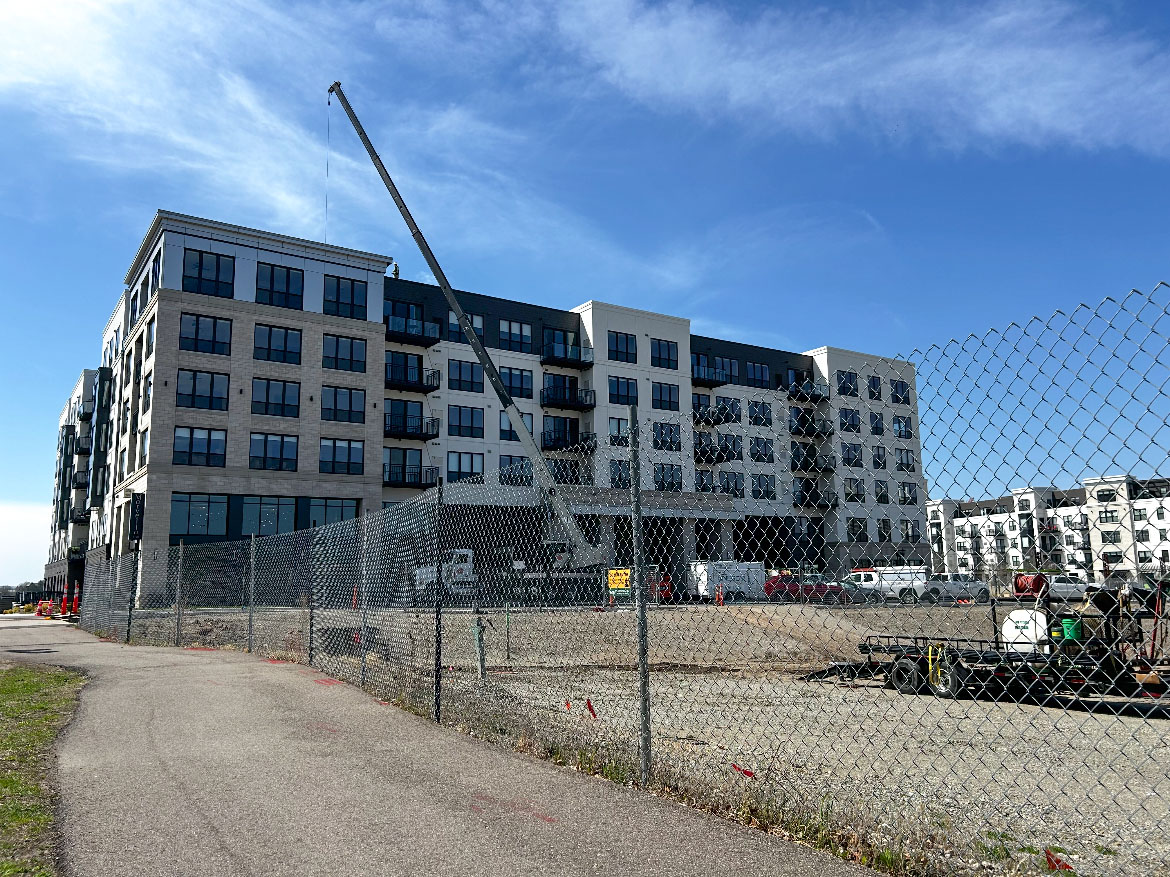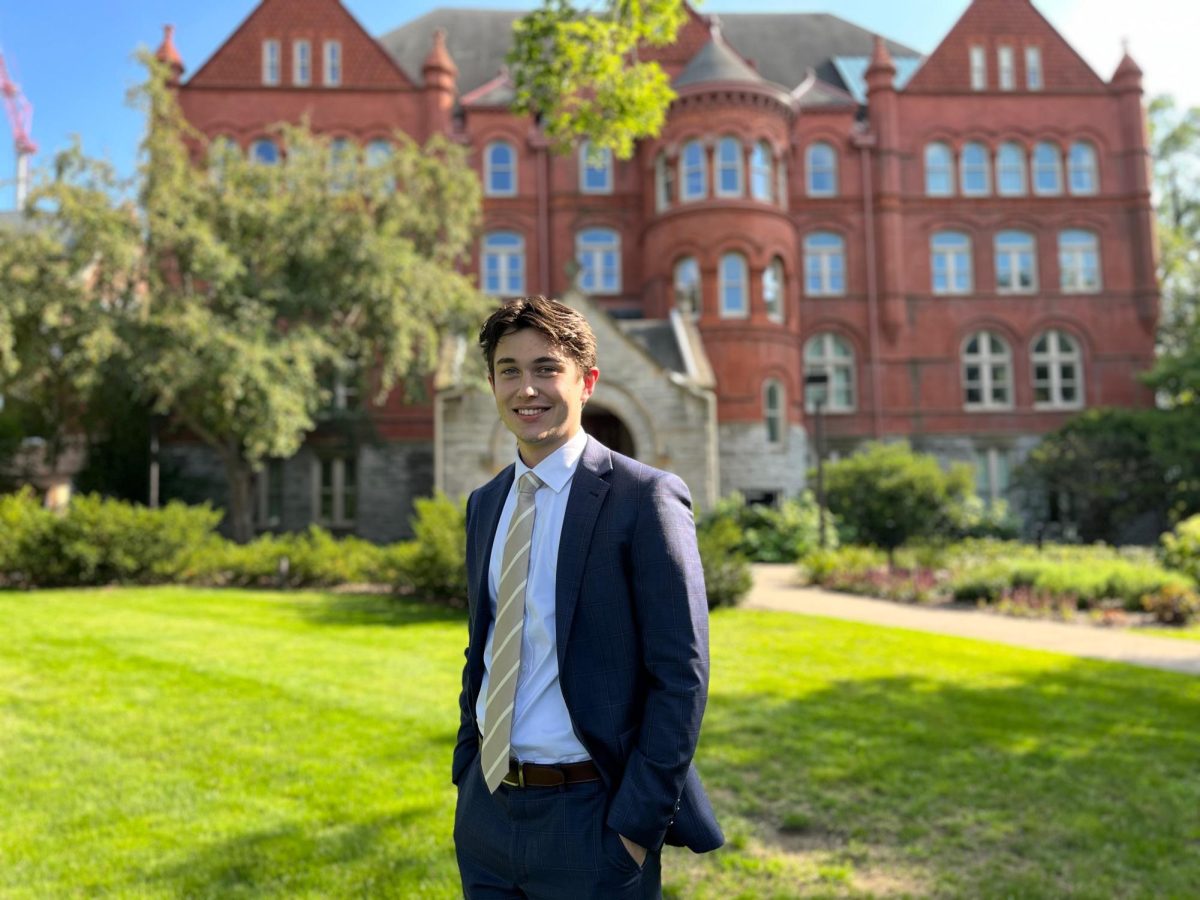
Adolph Reed, professor of Political Science at the University of Pennsylvania, spoke at this year’s 34th annual Mitau Lecture. Before the event, The Mac Weekly sat down with Reed to talk about his work, his views on America’s political state of affairs, and his experiences with activism. This interview has been edited for length.
TMW: What sparked your interest in the idea of social justice? What made you think that some type of political change needed to occur?
AR: I’ve been associated with left politics as long as I can remember. For the last 20 years or so, it seems that things have gotten worse and worse. Progressive interests were not only not making any headway, but beginning to lose ground. I’ve been struck for some time that the tendencies of people who consider to be on the left has been to keep doing the same things, following the same practices, without paying much attention to the fact that they don’t produce any results.
TMW: Have you encountered any kinds of challenges while arguing your position? Some have identified you as ‘electorally nihilistic.’
AR: It’s predictable. What leads people to see my perspective as nihilistic to me just seems like a lack of political vision and imagination. The big problem is, as the Democrats have moved increasingly to the right … the center of gravity of left political imagination has moved to the right along with it.
TMW: With [Bill] Clinton beginning that practice of integrating right views and instituting that in his campaign, do you see that kind of political compromise as necessary in terms of progress? That people will not vote or engage otherwise unless there’s that element of engagement for both the right and the left?
AR: No, I think it’s the opposite of progress. It’s a little like the slogan of doing more with less. The idea that the only way to pursue a left agenda is to absorb a right agenda is preposterous. The only way to pursue a left agenda is by pursuing a left agenda. The problem is that where we stand in American politics right now is that we have two neoliberal parties. Given the implications of the neoliberal orientation that both those parties share, we obviously need some new choices.
TMW: You’ve argued that politics have slowly eroded to the extent that image and identity have triumphed over content, leaving the left empty in terms of having a substantive agenda. Do you see this changing, despite the highly sensitive and politicized environment surrounding topics like racial and social justice?
AR: I think it has to change. I’m not one of those people who believes that crisis produces automatic and responsive action. I don’t believe that at all. But I do think it could be becoming clearer to more and more people that the sources of their concerns have to do with class power.
One of our founding premises was that most working people in this country, by a very large margin, spend most of their time being concerned about the same stuff, like access to healthcare, job security, finding a job, good quality housing. And that’s something you build on, and that’s what the labor movement has been all about. If we don’t find a way to change the forces that are coming at us, one by one every institution of social solidarity in the country is under attack. We’ve got to find ways to fight back. If we can’t find a way to go back on the offensive, then things are just going to get worse and worse.
TMW: You advocate activism as key to moving forward, as you cite the 1960s movements and their influence in building and advancing goals on the left. However, we’ve seen movements like Occupy Wall Street fall to the wayside, as well as a general feeling that the rising generations of today are simply disengaged and disinterested in politics. What’s the endgame look like and what role do you see activism playing in it?
AR: One thing that’s happened is that this essay called “Action Must Be Taken” references a phenomenon called activist-ism, which is the notion that action is its own politics. I’ve seen this take action in a number of domains. For example, a student of mine expressed a concern that, in this model, at a certain point a political movement will challenge for power, and once it challenges for power, if it’s successful, then the terms of political debate will be renegotiated and we’ll start all over again. The student expressed concern because the model doesn’t seem to account for hip-hop as a form of politics, and he began, if you think of hip-hop as a form of politics, then this model doesn’t work.
It seems to me that a sine qua non for politics is the attempt to influence public policy and change forms of government, if not take over the government. And the student says, “But the young people who are engaged in this as a form of politics really believe that it’s a form of politics.” And I can understand why they do. But it takes more than your belief that something is. I’ve argued that it’s another expression or reaction to a history of defeat and demoralization. There are two ways to respond to that kind of defeat: you can respond to defeat by saying “Okay, we’ve been defeated,” and just accept it, and a less extreme response is to recognize that defeat and opt for a different strategy. The other response is kind of a wish-fulfillment, a tendency to pretend that defeat isn’t defeat. You start making up ways to tell yourself that you’ve actually won. Everybody gets a most valuable player trophy. And I think that one of the things that’s happened is conflating struggling for political change and self-fulfillment. The more that you see the two as part of the same thing, the more you see stuff happening like people calling for demonstrations for some outrage, and never considering what the effects of the demonstration [are]. And it’s partly because they don’t have effects anymore. The main effect is to let you feel good about yourself.
TMW: So then, in achieving that substantive agenda, do you have any advice for young activists and organizers?
AR: I’m not sure I’m the best place to look for that kind of advice, but I think that the most important thing is [to] try to formulate a vision of what you think this society ought to look like. How it ought to be governed. And the social interests in whose name the society ought to be governed. And then look to work in concert with like-minded people to figure out strategic ways to build and broaden a base of people who will support and agitate for versions of that vision.






Carl Gray • Sep 9, 2019 at 7:53 pm
Throughout this great pattern of things you actually secure a B+ with regard to effort. Where you lost everybody ended up being in the facts. You know, they say, the devil is in the details… And it couldn’t be more true in this article. Having said that, let me inform you precisely what did work. Your writing is definitely quite persuasive and this is most likely the reason why I am taking an effort to opine. I do not really make it a regular habit of doing that. 2nd, whilst I can easily see a leaps in reasoning you make, I am not necessarily convinced of exactly how you seem to unite your details that produce your conclusion. For now I shall subscribe to your issue however trust in the near future you link the dots much better.